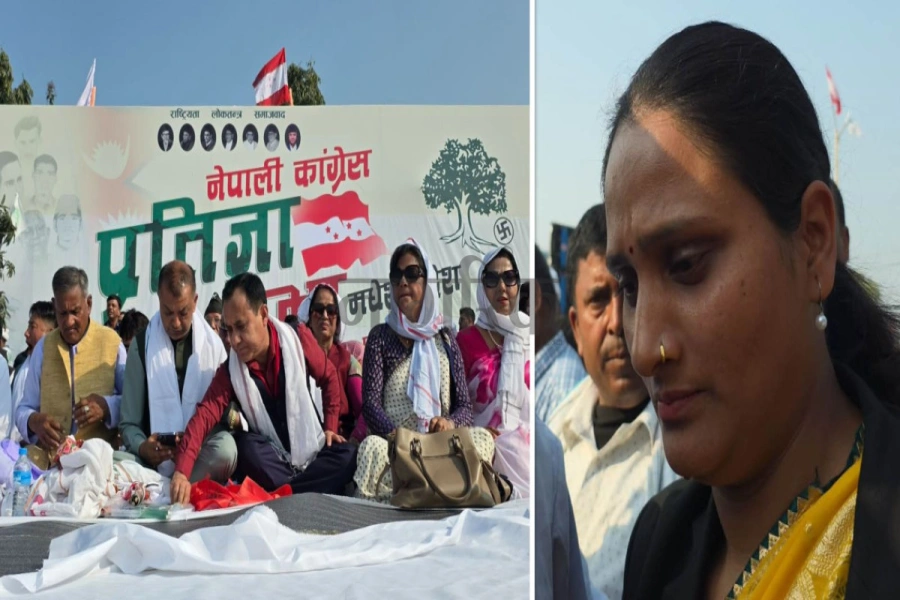JUMLA, March 16: The “Ek Ghar, Ek Syau Bagaicha” (One House, One Apple Garden) campaign that began in Jumla with an aim of making farmers self-sustained through apple farming has proved to be beneficial for the farmers.
As part of the project, 3,450 hectares of land has been used for apple farming. According to Krishi Gyan Kendra Jumla, farmers have gained much profit through apple farming.
Farmers were initially attracted towards apple farming because Jumla’s soil and climate greatly favored the growth of healthy, juicy apples. The “Ek Ghar, Ek Syau Bagaicha” program began in Jumla from the Fiscal Year 2008/09. As part of the program, farmers were provided with apple seeds and given training regarding the significance of apple farming.
Finance expert of Krishi Gyan Kendra Jumla, Balakram Devkota, said that the prospects of apple farming are extremely high in the district.
“The demand for apples is growing in both the domestic and international markets,” Devkota said. “While previously farmers had to travel long distances to sell apple, traders nowadays reach apple gardens itself to buy apples.”
RSP Chair Lamichhane’s campaign event barred in Nawalparasi Wes...

According to Devkota, approximately 1,500 of the total 18,000 households in the district have apple gardens. Land with an average of 25 apple plants is considered one garden. These gardens are increasing every year.
Besides apples, farmers are also producing and selling apple seeds. Agricultural technicians are now prioritizing on producing healthy plants.
“Apples can be a prime source of income for local and provincial governments,” Devkota said. According to Devkota, apple plants in 950 hectares of land are giving fruit.
However, in later years, the district’s focus on newer breeds of Italian apple plants has threatened the extinction of local breeds.
5,600 metric tons of apples were produced from the district in the current fiscal year. Even though the number of apple trees is increasing each year, the produce hasn’t increased in the same ratio.
Farmers, however, continue to work with the same dedication to produce apple of high quality that could be exported internationally. Jumla apples are sold in Kathmandu, Pokhara, Butwal, Nepalgunj, Narayangadh, and Surkhet among other places.
This year’s apple market was a business worth Rs 320 million, fetching local farmers a handsome income.
According to Devkota, apple produce decreased this year because of various reasons including hailstones during the time when apple trees bore fruits. Other reasons included inadequate snowfall, heavy rainfall, and infection by various insects.
“However, farmers are relieved now that insurance in apple farming has begun,” he said.
According to Devkota, farmers could do better if they put the knowledge and skills into practice. They are yet to make optimum use of the equipment they have acquired, he added.







































